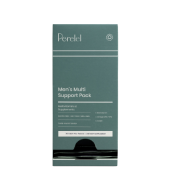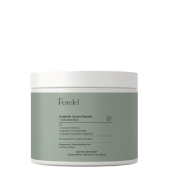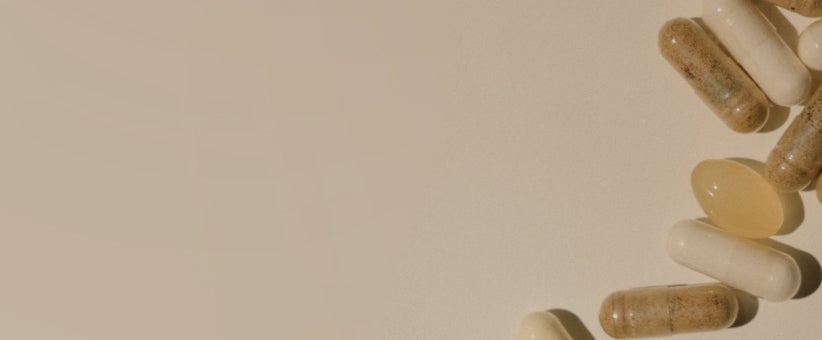Breastfeeding your baby can be a beautiful journey for mothers, but with it comes responsibility. Not only to be a food source for your child, but also to keep in mind that what you eat, is what they eat. Stephanie Lauri, Registered Dietitian Nutritionist and Certified Lactation Educator, told us that “the first 1,000 days of life, starting from conception to age two, are the most critical and vulnerable time for a child's brain development and long term mental health.”1
Keeping in mind that your food choices impact your child’s health, here are the seven top foods Lauri recommends for maternal and infant health while breastfeeding.

1. Eggs
Eggs are one of highest dietary sources of Choline which is required for brain and nervous system functions such as memory, mood, and muscle control.2 “It is estimated up to 95 percent of pregnant women don't consume enough Choline in their diet during pregnancy, and the requirement for Choline increases during lactation,” Lauri says. The good news? “two eggs provide just over half your daily requirement for choline during lactation.”
Our core prenatal features a significantly higher dose of Choline than in most prenatals to support fetal neurodevelopment and DHA metabolism.
2. Salmon
“Salmon provides DHA and EPA for brain development and iodine to support thyroid function and neurodevelopment,” Lauri explains. Aim for a minimum of two servings of fatty fish, like salmon, per week to meet the recommended intake of DHA.
3. Whole Fat Greek Yogurt
Reach for greek yogurt for “probiotics, protein, calcium, iodine, vitamin A, vitamin D, and vitamin K, which helps with bone mineralization,” Lauri suggests.
4. Leafy Greens
Leafy greens like kale, spinach, and cabbage are packed with “B vitamins, including folate which is important for DNA metabolism,” Lauri says.
5. Avocado
According to Lauri, “avocado offers an easy way to get a nutrient dense source of calories. Energy requirements are quite high especially during early lactation and it can be challenging for a new breastfeeding mom to find time to eat enough to fuel a constant source of energy.”
6. Beans and Lentils
Powerhouse beans and lentils are wonderful for “fiber and iron which is necessary for physical growth, neurological development, cellular function, and hormone synthesis,” Lauri says.
7. Bone Broth
Bone broth is packed with “protein, collagen, iron, zinc, calcium, magnesium, all of which are important in cellular function, connective tissue, cardiovascular system, DNA synthesis and growth,” Lauri explains.

Nutrient Absorption 101
Strategic food pairing can also aid in nutrient absorption. Lauri suggests, “pairing high iron foods—like meat, chicken, lentils, beans, eggs, cashews, chocolate, and breakfast cereal—with foods high in vitamin C—like kiwi, strawberries, orange, bell peppers, and broccoli—will help enhance absorption of iron. Try to avoid taking calcium supplementation near a meal that contains iron, as this may decrease absorption of dietary iron.”
Vitamins for Breastfeeding
“Both fat-soluble, vitamins A, D, K, and water-soluble vitamins (vitamins C, B1, B6, B12, and folate) are secreted into breast milk, and their levels are reduced in breast milk when there is a maternal vitamin deficiency,”3 Lauri says.
Also keep in mind that “for those that follow a vegan diet, vitamin B12 supplementation is crucial during breastfeeding to avoid developmental delays or failure to thrive in your infant.”4
Lastly, “while breastfeeding, you need a consistent and reliable source of iodine to ensure the baby gets enough as mom's intake of iodine predicts breast milk iodine levels. Iodine is key for thyroid, brain, and metabolic health,5 so if you don't regularly consume seafood, eggs, or dairy, taking a vitamin with iodine is crucial,” Lauri says.
Shop the Article:
How is your feeding journey going? We asked five moms to give us their unfiltered take on how feeding was for them in—read their feeding diary next.
1 PEDIATRICS Volume 141, number 2, February 2018:e20173716).
2 Institute of Medicine. Food and Nutrition Board. Dietary Reference Intakes: Thiamin, Riboflavin, Niacin, Vitamin B6, Folate, Vitamin B12, Pantothenic Acid, Biotin, and Choline. Washington, DC: National Academy Press; 1998.
3 Med Clin North Am. Author manuscript; available in PMC 2017 November 01
4 Food and Nutrition Bulletin, vol. 29, no. 2 (supplement), 2008
5 Real Food for Pregnancy, Lily Nichols 234, 2018
Written by Jessica Lopez. Jessica Lopez is a freelance writer, digital content creator, and new mother. She has covered all lifestyle topics ranging from bridal to beauty for publications including Brides Magazine, Byrdie, THE/THIRTY, and more. Walking wide-eyed into motherhood has inspired her to connect with other parents through her writing and shared experience. You can follow more of her journey @Jessica.H.Lopez.
This article is for informational purposes only. It is not, nor is it intended to be, a substitute for professional medical advice, diagnosis, or treatment and we recommend that you always consult with your healthcare provider. To the extent that this article features the advice of physicians or medical practitioners, the views expressed are the views of the cited expert and do not necessarily represent the views of Perelel.



















